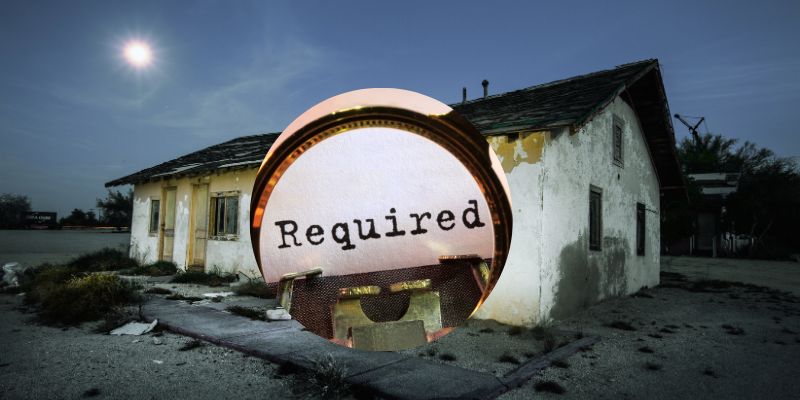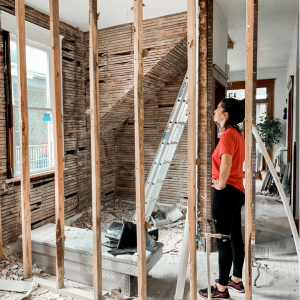
Delving into the Intricacies of Property Condemnation in Fort Worth, TX
If you want to learn more about land condemnation in Fort Worth, TX, you need to know the exact legal steps and requirements set by Texas law. This guide gives you important information about how the process works, whether you’re a homeowner who might be foreclosed on or an investor who wants to buy a troubled property. In Fort Worth, this document shows the rules that can lead to a house being condemned, the rights of property owners, and the laws that govern these actions. By going over the most important reasons why property is taken away, you’ll be better prepared to make smart choices in this Texas city that is growing quickly.
Understanding House Condemnation in Fort Worth
Having a house condemned in Fort Worth involves navigating a web of local property standards and regulations. For homeowners, the experience can feel overwhelming because it requires meeting both state law and the rules enforced by Fort Worth’s governing authorities. Knowing how condemnation changes the status of a property and the role played by the condemning entity is critical to handling this process. Breaking these elements into clear steps helps property owners gain clarity, improve compliance, and address the challenges linked to condemned homes in Fort Worth.
How Condemnation Affects Texas Property
Condemnation greatly impacts Texas properties, particularly in Fort Worth’s city limits. Once a house receives the condemned house label, it falls under tight state and local scrutiny to confirm it no longer meets safe living standards. Properties that have been deemed dangerous need a lot of work to get back in line with the Texas property code. Until those changes are made, the properties can’t be lived in. There are instant problems for owners, like not being able to rent or sell until repairs meet housing codes. From a financial point of view, condemnation often comes with high costs that owners aren’t ready for. These issues also affect long-term property value, hurting marketability and blocking equity-based solutions. Because Texas law sets out detailed compliance steps, owners must engage with local housing authorities to fix safety issues, structural concerns, or usage violations. Failing to comply may create ongoing legal troubles that prevent the house from regaining viable status. Understanding these wide-ranging consequences helps Fort Worth property owners prepare for risks tied to condemnation and act quickly to restore compliance.
Role of the Condemning Entity in Fort Worth

In Fort Worth, the condemning entity plays a central role in how property condemnation unfolds. These municipal bodies enforce property codes, evaluate structural and safety concerns, and step in when homes create hazards for residents or neighbors. Their main duty is to ensure safe living spaces by applying standards outlined in Texas law. When a property is flagged, inspectors assess it against housing codes, checking utilities, stability, and sanitation. If flaws are found, owners are sent notices with the fixes that need to be done and when they need to be done by.
Once a house is condemned, the organization steps in like a mediator between the property owner and local authorities. They provide guidance, a roadmap, and deadlines to help owners bring the home back into compliance. Think of it as having a coach on your team—they make sure inspections and follow-ups are scheduled so the property doesn’t fall further behind. By approaching the process as a partnership rather than a battle, owners can move repairs along faster and avoid long periods of vacancy.
Ultimately, the condemning body works not only as a rule enforcer but also as a guide to help property owners transform condemned houses into safe, livable homes again. This is like turning an abandoned car back into a reliable vehicle—it restores value, safety, and stability for the whole community.
And for homeowners who feel overwhelmed by the process, there’s another option: we buy houses in Fort Worth, offering a way to move forward quickly without carrying the full weight of repairs and compliance alone.
Criteria for a House to Be Condemned
Recognizing the criteria for condemnation is essential for any Fort Worth property owner. By law, these rules are followed in Texas to make sure that homes stay safe and safe to live in. When homes don’t meet health or safety rules, usually because repairs haven’t been done or the property is in bad shape, they are condemned. People who own property can fix problems quickly before they get worse if they know what the code standards are. To better protect their homes from the time-consuming and expensive process of condemnation, residents and investors should know these legal and procedural ground rules.
Key Property Standards in Texas
Property standards in Fort Worth, drawn from Texas law, are designed to protect public safety and quality of life. A condemned house typically falls short on structural integrity, electrical systems, plumbing, or overall maintenance. Examples include a collapsing roof, weak foundation, or hazardous wiring. Homeowners must stay on top of repairs, since compliance not only prevents condemnation but also sustains property value. Regular safety inspections look at fire prevention, sanitation, and materials like asbestos, ensuring homes remain safe for occupants. If you deviate, you might be condemned, which would hurt your marketability and use. The owners can handle problems before they get worse if they do regular maintenance and know Fort Worth’s city code. Homeowners can protect their investments and the safety of their neighborhood by staying informed and working with the local government.
The Legal Process of Condemnation
The legal process of condemnation in Fort Worth serves as both a corrective and preventive measure to protect the community. Based on Texas law, it starts when officials find that a building doesn’t meet safety standards. Owners then receive formal notice listing needed repairs and compliance steps. The process is serious, but it’s not hostile; instead, it pushes officials and owners to work together to make things safe again. If a homeowner really wants to make fixes, they can file an appeal, show proof, or talk about a new due date. Fairness, openness, and communication can help keep disagreements from going on for too long. Compliance eventually makes things habitable again, but it takes work and talking to the officials. Property owners in Fort Worth can speed up the process and turn condemned homes back into safe places to live if they know their rights and duties.
Impact of Owning a Condemned House
Owning a condemned home in Fort Worth comes with challenges beyond just financial concerns. Texas law is very strict and can affect the worth of a home, future sales, and even plans for long-term investments. Property owners need to be very careful when following property codes to avoid getting fined a lot of money. They also need to think about taxes and other legal responsibilities. Beyond money, condemnation can also affect community perception and personal stress levels. Recognizing these overlapping effects allows property owners to prepare smarter strategies and manage the full scope of risks associated with condemned homes.
Consequences for Texas Property Owners

For Texas homeowners, owning a condemned property can bring serious consequences. Immediate challenges often include safety code violations, costly repairs, and strict deadlines to resolve issues. In Fort Worth, city authorities may require major upgrades such as structural fixes, electrical work, or fire safety improvements. Financially, these unexpected costs can be overwhelming, and failure to comply may result in fines, forced sales, or even demolition.
On top of financial stress, a condemned home usually loses market value, hurting equity and long-term investment plans. The stigma can also impact reputation, as neighbors and potential buyers often view condemned homes negatively. For many owners, one practical solution is to sell your house fast in Texas, avoiding drawn-out expenses and legal risks. By staying proactive, knowing their responsibilities, and keeping open communication with city officials, homeowners can minimize risks, protect themselves, and move forward with a fresh start.
Tax Implications for Condemned Houses
In Fort Worth, homes that have been condemned also have confusing tax effects. The assessed value of a property generally goes down, which lowers taxes. However, this drop means that the property is less likely to be sold or invested in. To get fair changes, owners must carefully record the conditions and work closely with the tax assessor. If you skip these steps, you might end up paying more than you need to, which will add to your financial stress. But there may be some exceptions or breaks, especially if the repair fits in with community or preservation goals. By talking to lawyers and tax experts, business owners can make sure they are following state laws and look into possible rewards. If you plan ahead and work together strategically, you can turn these problems into chances that will help your business.
Preventing and Addressing House Condemnation
In Fort Worth, keeping your home from being condemned takes both regular upkeep and knowledge of the city’s building codes. Fixing things as soon as they break not only saves you money but also keeps the community safe and looks nice. For owners who are facing foreclosure, getting through the system means working directly with housing officials and following the rules for repairs. People can avoid long-term problems by being aware, getting ready, and acting quickly. Property owners protect their investments and make the area safer by focusing on both compliance and prevention. Being condemned isn’t just a legal problem; it’s also a reminder of the responsibilities that come with owning land in Fort Worth.
Renovation Requirements for Condemned Houses

Restoring a condemned house in Fort Worth begins with tackling the renovation requirements outlined by inspectors. These repairs often involve addressing foundations, roofing, plumbing, and electrical systems. Licensed contractors familiar with Fort Worth codes play a vital role in bringing properties back into compliance. Safety remains the priority, from reinforcing structures to adding fire safety systems and removing hazardous materials. Energy-efficient upgrades, like improved insulation or HVAC systems, not only meet standards but also lower long-term costs and may qualify for incentives. Collaboration with city officials ensures inspections stay on track and documentation is complete. By embracing safety, compliance, and sustainable solutions, property owners protect their investments and contribute to their community’s well-being.
Knowing Fort Worth’s requirements for condemnation can help both homeowners and buyers get ready for problems that come with living in unsafe housing. Owners can confidently deal with problems if they know about the review, compliance, and restoration processes. Getting help from lawyers or real estate professionals is another way to protect yourself from losing money. Property owners can stay in charge of what happens with their property, whether it’s their own home or an investment. They can do this by staying informed, taking action, and following the rules. When dealing with foreclosed homes in a city like Fort Worth that is always changing, knowledge is truly the most important thing you can have.
Community Impact of Condemned Properties
In Fort Worth, condemned homes don’t just affect the people who live in them; they also affect the neighborhood. Homes that are empty or unsafe can cause nearby property values to drop because buyers and investors think these areas are less attractive. Also, properties that have been abandoned may become targets for vandalism or illegal activity, which raises safety concerns in the neighborhood. This makes things harder for friends in terms of both money and quality of life. To stop these effects, local governments often work with residents to fix up troublesome homes, stressing the importance of active community participation in keeping areas safe and appealing. Fort Worth can keep growing and keep its strong community draw by quickly fixing problems with condemned property.
Resources for Property Owners in Fort Worth
Property owners in Fort Worth facing condemnation challenges are not without support. Several resources are available to guide them through legal, financial, and renovation steps. Local housing departments provide detailed checklists for compliance, while nonprofit organizations occasionally offer grants or assistance programs for repairs. In addition, real estate attorneys and property management firms can help owners interpret Texas property codes and develop strategies for resolution. Online tools, community workshops, and municipal hotlines also exist to provide updated information and direct guidance. Accessing these resources ensures owners stay informed, manage requirements effectively, and reduce the stress tied to navigating condemnation.
Working With Professionals to Navigate Condemnation
Dealing with a condemned property in Fort Worth can be overwhelming, but the right professionals make the process manageable. Real estate attorneys guide property owners through their rights, help negotiate timelines, and file appeals when needed. Licensed contractors ensure all repairs meet Texas safety codes and Fort Worth ordinances, protecting long-term compliance. Financial advisors can recommend strategies for covering unexpected costs or securing financing for major renovations, while tax experts assist with valuation adjustments and uncover available relief options. By building a dependable team, owners can restore condemned properties more efficiently and avoid expensive mistakes. And for those looking for a faster solution, A Cash Home Buyer buys houses cash in any condition—call us today.
FAQs:
What is property condemnation in Fort Worth, TX?
The legal process for taking back a house that is dangerous to live in in Fort Worth, TX is called property condemnation. This decision is based on Texas law and state codes. The property usually needs a lot of repairs before it can be rented out again.
How does the condemnation process affect property owners financially?
Owners may have to pay to follow the rules, their property may lose value, or they could even be sued if the rules aren’t followed. Making repairs to get back into compliance can be expensive and put a strain on your finances.
What role does the condemning entity play in the condemnation process?
The condemning entity enforces property standards, guides owners through renovations, and mediates with local officials to resolve unsafe housing concerns.
What criteria lead to a house being condemned?
A house may be condemned due to failing structural integrity, unsafe plumbing, or non-compliance with Texas and Fort Worth safety codes.
What renovation strategies can owners use to avoid or reverse condemnation?
Regular maintenance, timely repairs, and strategic upgrades to utilities and structures prevent condemnation and restore a home’s marketability.
Helpful Fort Worth Blog Articles
- Contingency On Selling House in Fort Worth, TX
- Condemned House Requirements in Fort Worth, TX
- Divorce Home Appraisal in Fort Worth, TX
- Selling Home with Reverse Mortgage in Fort Worth, TX
- Selling a House After 3 Years in Fort Worth, TX
- Is Fort Worth, TX Safe?
- Fort Worth, TX Property Managers
- Free Things to Do in Fort Worth, TX
- How to Sell a Deceased Parent’s Home in Fort Worth, TX
- Understanding the Taxes When Selling Your home in Fort Worth, TX
- Fun Facts About Fort Worth, TX
- Fort Worth, TX Property Tax Rate
- Fort Worth, TX Neighborhood Map
- Fort Worth, TX Cost Of Living
- Fort Worth, TX Closing Costs Calculator
- Fort Worth, TX Capital Gains Tax Calculator

